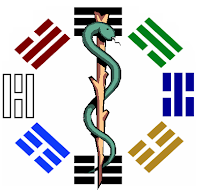Alternative Medicine is effective in treating Xerostomia
Xerostomia or dry mouth is experienced by approximately 70% of head and neck cancer patients after receiving radiotherapy for their tumors. In the majority of cases, their saliva is no longer useful. Eating becomes a chore as it is very difficult to swallow and taste. Unfortunately, treatment of this condition through traditional medicine may be ineffective in many cases. There is a high percentage of failure and there are many side effects associated with these pharmaceutical agents.
Medical studies confirm the efficacy of Acupuncture treatment of Xerostomia
Acupuncture was found to be effective in treating xerostomia caused by radiotherapy for head and neck malignancy even in cases when xerostomia did not respond to "pilocarpine treatment" through traditional medicine. There were no adverse effects referable to acupuncture. An increased degree of salivation was subjectively present in all cases after acupuncture. Follow-up evaluations revealed that the oral buccal mucosa was moist and saliva present. All patients were capable of expectoration. We recommend that patients be treated with twice-weekly sessions for 1-2 weeks, then every 3- 4 weeks, depending upon the severity of their cases.
The treatment
As published in the medical journal "Cancer" which is referenced below acupuncture treatment for xerostomia is accomplished through inserting needles into the ears and the hands. It is recommended that patients be treated with twice-weekly sessions for 1-2 weeks, then as needed. Additional treatments may be needed every few months depending on the severity of the condition although some patients achieve lasting response
without further therapy. (Cancer 2002;94:1151–6). Medical studies supporting the efficacy of Acupuncture in treating Xerostomia.
